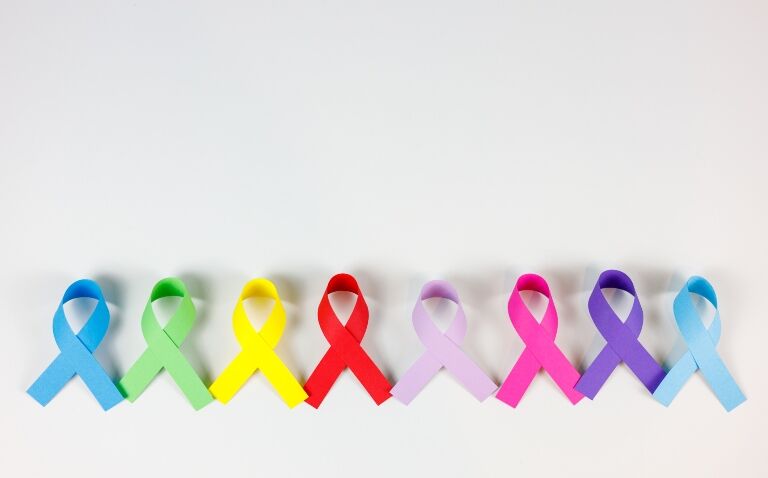Both the global cancer burden and inequity in cancer and palliative care services are growing across the world, according to new figures released by the World Health Organization (WHO).
Published to coincide with World Cancer Day (4 February 2024), the survey undertaken by the WHO’s cancer agency, the International Agency for Research on Cancer (IARC), shows a growing need for more cancer-related health services worldwide.
Over 35 million new cancer cases are predicted in 2050, a 77% increase from the estimated 20 million cases in 2022, the IARC said.
This ’rapidly growing global cancer burden’ reflects population ageing and growth, as well as changes to people’s exposure to risk factors such as tobacco, alcohol, obesity and air pollution, it added.
Cancer prevalence
The figures show that 10 types of cancer collectively comprise around two-thirds of new cases and deaths globally. Lung cancer is the most commonly occurring cancer worldwide, followed by female breast cancer and colorectal cancer.
In 2022, there were an estimated 20 million new cancer cases and 9.7 million deaths, with lung cancer accounting for 2.5 million or 12.4% of the total new cases.
Female breast cancer ranked second with 11.6% of new cases, followed by colorectal cancer, which accounted for 9.6% of new cases. Prostate cancer and stomach cancers were the next two most common, respectively.
Lung cancer was also the leading cause of cancer death, accounting for nearly a fifth of the total cancer deaths, followed by colorectal cancer 9.3% of deaths and liver cancer 7.8% of deaths.
Differences were seen between sexes, with breast cancer being the most commonly diagnosed cancer and leading cause of cancer death amongst women, whereas it was lung cancer for men.
Prostate and colorectal cancers were found to be the second and third most commonly occurring cancers for men, with liver and colorectal cancers second and third most common causes of cancer death.
For women, lung and colorectal cancer were second and third for both the number of new cases and of deaths.
Lung cancer’s re-emergence as the most common cancer is likely related to persistent tobacco use in Asia, the IARC said.
Cancer and palliative care services
The figures also show that a majority of countries do not adequately finance priority cancer and palliative care services.
Only 39% of participating countries covered the basics of cancer management as part of their funded core health services for all citizens, and only 28% of participating countries additionally covered care for people who require palliative care.
In areas where patients are underserved in relation to cancer treatments, rates of cancer are higher, highlighting a growing inequity in cancer services worldwide.
Dr Panagiota Mitrou, director of research, policy and innovation at the World Cancer Research Fund, stated that the UK Government needs to prioritise cancer care in light of the increasing number of global cases.
She said: ‘These new estimates show the increased burden that cancer will have in the years to come. UK Governments’ failure to prioritise prevention and address key cancer risk factors like smoking, unhealthy diets, obesity, alcohol and physical inactivity has, in part, widened health inequalities. We know around 40% of cancer cases could be prevented.’
She added: ‘Now is the time to turn the tide by implementing policies that enable people to live healthier lives by reducing their exposure to risk factors and prioritising a national cancer plan which includes better screening and early detection.’
Gene testing programme for England
The WHO figures come as NHS England announces the launch of a national gene testing programme to identify cancer risk for people with the BRCA gene.
The BRCA refers to two genes, BRCA1 and BRCA2, which repair DNA damage and help to protect against cancer. If one of the genes is faulty, this can increase a person’s chance of getting cancer significantly.
People with Jewish ancestry are around six times more likely to carry such genetic faults than the rest of the population and are therefore at increased risk of developing some cancers.
Through genetic testing, the NHS plans to identify people carrying faults in the BRCA gene to ensure those affected have access to early surveillance and prevention services.
People with at least one Jewish grandparent can register for a saliva test kit, and following the success of the pilot programme, it is expected that the national roll-out will see around 30,000 people tested over the next two years.
Commenting on the programme, Peter Johnson, national clinical director for cancer at NHS England, said: ‘BRCA testing for the people most at risk has the potential to save lives by allowing them to take steps to reduce the chance of cancers developing or making sure that any cancer can be detected as early as possible, with those at increased risk able to take advantage of surveillance and prevention programmes with their health teams.’
A version of this article was originally published by our sister publication Nursing in Practice.










